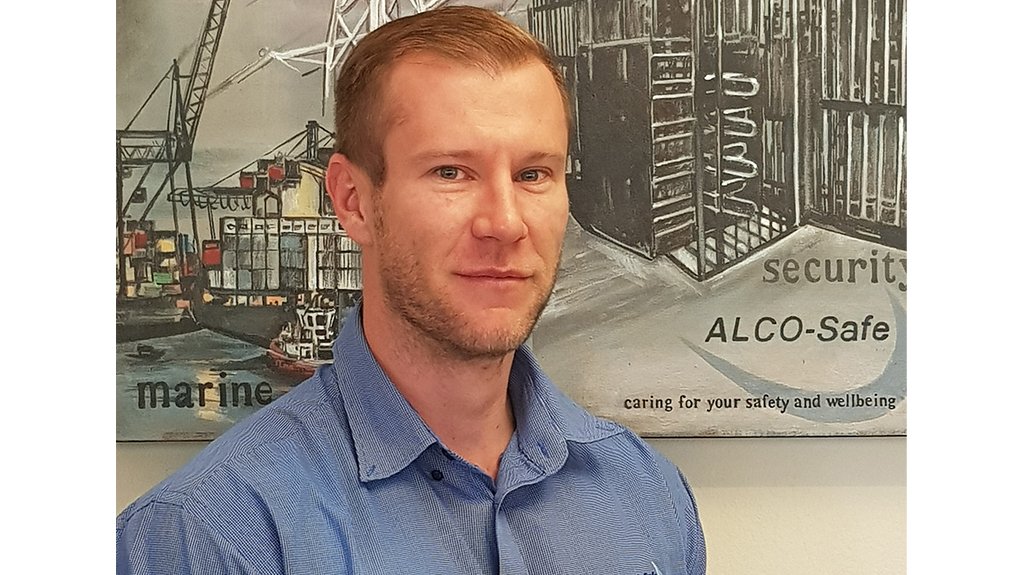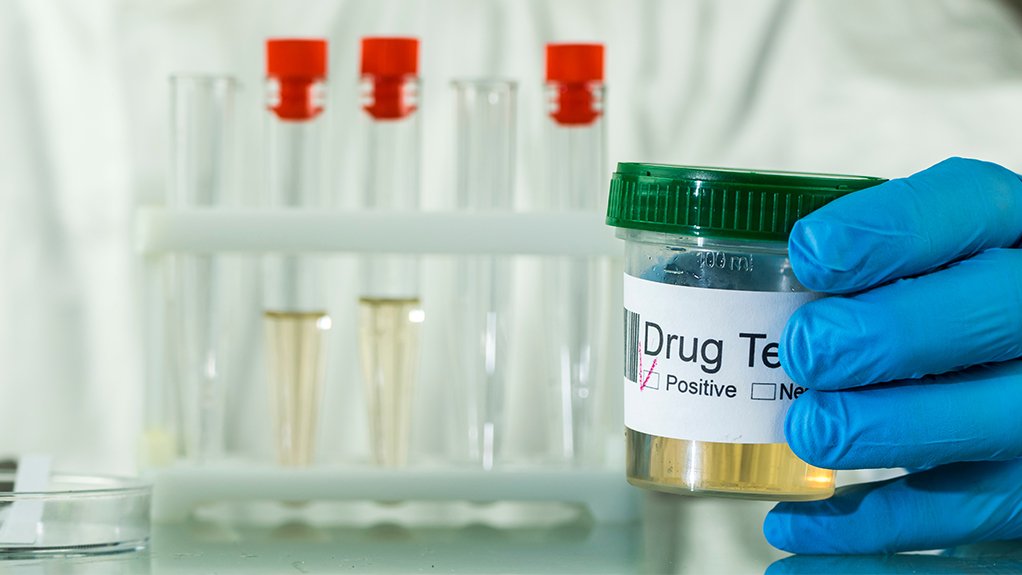Substance abuse continues to be a significant problem for employers in South Africa; however, substance abuse testing equipment supplier ALCO-Safe MD Rhys Evans notes that some employers are trying to base disciplinary action on the results of screening tests alone.
“A large number of companies have sought advice on their substance abuse testing policies, procured the correct tests and received training to ensure that they are administered correctly by competent people.”
Screening tests enable companies to quickly conduct tests on site, provide a result in a few minutes and are cost effective. Opting to use a confirmation test as an initial test for substance abuse significantly increases the cost involved and results are available only after 48 hours. Employees are also unable to work until a negative test result has been received.
There are companies, however, that conduct testing in the cheapest way possible and are, therefore, often not provided with guidance in terms of best practice by the company that sells the test to them, advises Evans.
“They are there to make a sale. Therefore, companies are not informed that these tests are only for screening purposes and that there is a specific procedure that needs to be followed to confirm the result.”
Subsequently, these companies base their disciplinary action on the results of these screening tests without having received the correct training or having suitable procedures and policy in place.
The number of local companies undertaking substance abuse tests incorrectly is equal to those which are undertaking them correctly, states Evans, highlighting that companies regularly approach ALCO-Safe for assistance after losing a case brought before the Commission for Conciliation, Mediation and Arbitration (CCMA).
“We advise our customers to confirm positive screening tests through a laboratory using gas chromatography/mass spectroscopy analytical techniques to prove that it was a genuine positive result.”
Substance abuse testing is more common and undertaken correctly in highly regulated industries, such as mining, construction, and transport – specifically rail – where companies are regularly audited for safety. This includes larger companies such as integrated energy and chemicals company Sasol.
It is the smaller companies comprising 20 to 30 people that are of concern, states Evans.
“They are doing testing with the right intention, but probably not with the correct policies and procedures in place.”
For example, he says it would be very difficult for a company that has never expressed the desire to conduct substance abuse testing to its employees to dismiss an employee after a drug test. Consequently, the employer will most likely end up losing a CCMA case.
However, if an employer does the necessary background work correctly, has its policy in place, has communicated this policy to employees, has undergone training on how to administer the test to ensure competency and that the correct procedure for testing is in place, an employee can be dismissed after a positive screening test has been confirmed by an accredited laboratory.
A South African Condition
“It is impossible to think that your company won’t be impacted on by substance abuse, as it is an inherent problem within South African society and this is from where you recruit your workforce,” says Evans.
As more employees return to the office following the Covid-19 pandemic, there is a significant uptick in drug testing being conducted by existing clients of ALCO-Safe.
“Sales are rising monthly, and we are getting three to five enquiries daily from companies wanting assistance with a substance abuse policy and the best testing method. “Companies are noticing that some of their employees aren’t behaving as they did at the office prior to the pandemic.”
Evans states that the decriminalisation of cannabis has made things a lot more difficult for employers who are not educated in terms of drug testing.
“People need to understand that they can use cannabis in their private time, just like alcohol, but by being under the influence of cannabis at work, they are in contravention of the Occupational Health and Safety Act, No 85 of 1993.”
If it is in the interest of health and safety and reasonably practical, an employer may include a clause in its employment contracts that prohibits employees from reporting for work under the influence of mind-altering substances.
When signing this contract, employees agree to the company’s policy, which should stipulate the possibility of employees being tested for alcohol and drugs on a compulsory, random, suspicion or post-accident basis using a specific test, as well as ensuring that a positive test result is not permitted.
Edited by: Zandile Mavuso
Creamer Media Senior Deputy Editor: Features
EMAIL THIS ARTICLE SAVE THIS ARTICLE
ARTICLE ENQUIRY
To subscribe email subscriptions@creamermedia.co.za or click here
To advertise email advertising@creamermedia.co.za or click here















